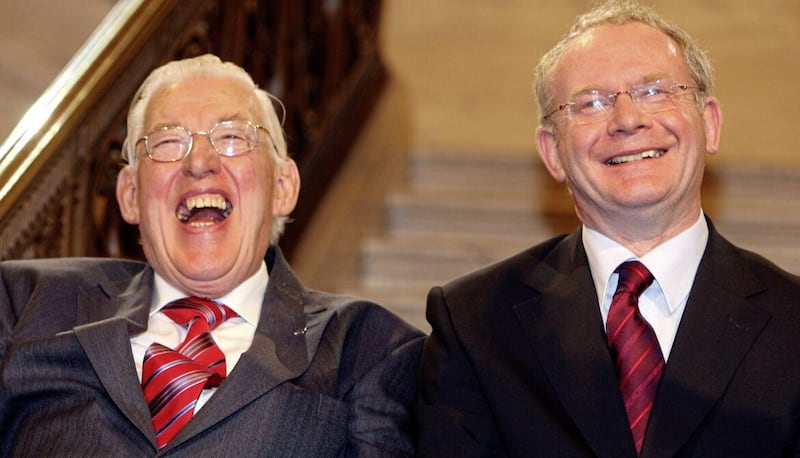It isn’t a matter of indifference to me that Conor Murphy is likely to be a member of Seanad Éireann in a matter of weeks.
He has long been one of Sinn Féin’s most significant players on this side of the border, so shifting him southwards should be viewed as an important tactical move by the party.
Subscriber exclusive: Q&A with political commentator Alex Kane
His comment that he wants to “bring a northern perspective to the intensifying debate around Irish unity” dovetails very neatly with a piece which Mary Lou McDonald wrote for this newspaper on December 16: “The momentum behind the ending of partition and reunification continues to gather and it’s the responsibility of all parties to put Irish unity at the top of the agenda.”
I disagree with those you ask why, by contrast, unionist leaders try to undo the present and move backwards.
Yes, there are elements of unionism which believe the clock can be turned back to a setting of their choice. But in my experience, a much broader range of unionism now accepts that there is no route back to some golden era.
That reality emerged in the 1998 referendum, when a majority of the pro-union community endorsed the Good Friday Agreement.
We saw it again in 2007 when the DUP won a substantial majority for a deal which would see Ian Paisley (followed by Peter Robinson) and Martin McGuinness jointly lead the executive for almost eight years.

We saw it again this year when a whopping majority of unionist MLAs backed the restoration of the institutions.
I have often written about the slowness with which unionism tends to approach change. But we have embraced it.
Let’s face it, the GFA and its institutions would not still be in place had a majority of unionism either abandoned them altogether; or abandoned the DUP and UUP in favour of the UKUP (Bob McCartney’s former vehicle) or Jim Allister’s TUV more recently.
Fair enough, the TUV has carved out a role for itself and established a base capable of being a thorn in the flesh of Gavin Robinson and Mike Nesbitt. But it remains a minority electoral force, and I don’t see that changing, not least because the party doesn’t have a viable alternative (which means one a significant section of nationalism would accept) and nor does it have sufficient influence within either the Labour or Conservative parties.
Which brings me to my presence at a pro-union gathering a few weeks ago.
Paul Bew was right to say there that unionism needs to move on from the Windsor Framework. It’s a battle it cannot win at Westminster, Stormont or the courts. It needs to move to other ground, with a better argument.

A lot of people at that event – and in others I have attended – accept that point. There is a growing feeling within unionism that it needs to end the pointless battles which usually deliver little more than further internal divisions.
I am asked if it’s not long past the time when unionist leaders laid out the facts to their respective electoral bases. Yes, it is. In a column for the Irish News on November 22, a few days before that pro-union event, I wrote: “For most of my career as a political observer I have argued for unionism to be prepared for every possibility, development and outcome. Yet so much of what happens seems to surprise us. Preparation is the key to survival. Let’s try it for a change.”
And the key to that preparation must be an honest assessment and setting out of the facts – no matter how uncomfortable they may be.
The time will come – probably not that far away – when unionism will have to have serious conversations with those outside its ranks.
Those conversations did take place in the run-up to the GFA and did include loyalism talking, seriously and honestly, to the Irish government.
But before unionism could even contemplate what might be described as the ‘existential’ conversation with others (a conversation against a background of political/electoral/demographic/circumstance changes), it needs to have a serious conversation with itself.
There is a way to go, which there always will be when a former majority struggles with new realities.
But something significant is happening within unionism now: and it should be welcomed.




